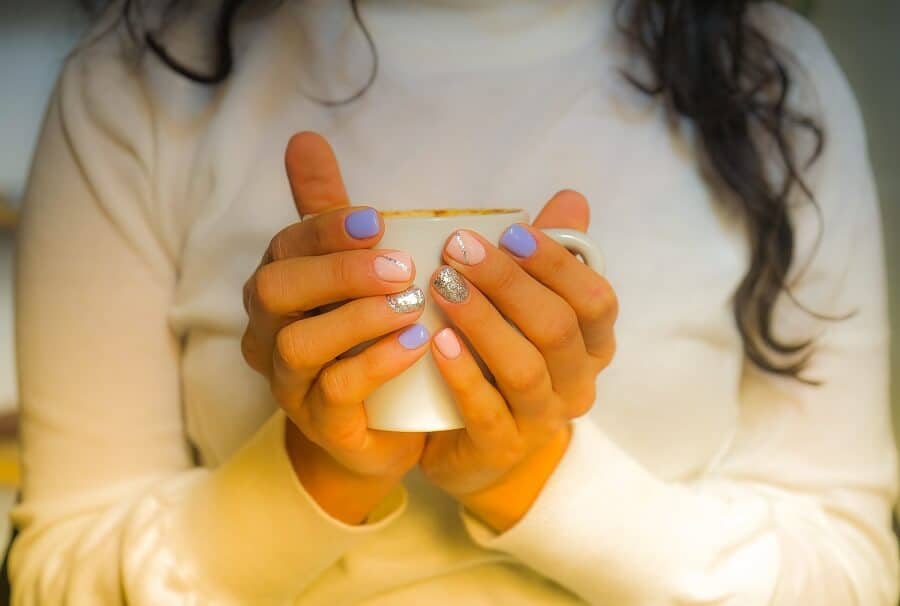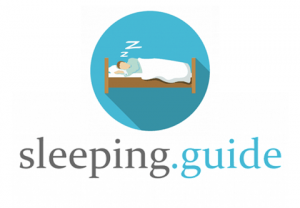Can you imagine how much better life would be with an extra 4 hours sleep every day?
Cutting your sleep time in half would unlock just that.
But of course, this is a pretty crazy topic.
So we need to get two things out of the way real quick:
- I’m not a doctor. While I love researching sleep, this is not medical advice. Just researched conclusions with scientific references.
- Sleep is SO fundamental to our health. Without good sleep we get tired, unable to concentrate, less happy, greater risk of illness, and that’s just to start. Playing with sleep can be a fun experiment, but please don’t sacrifice your happiness and well-being for it.
With that out the way, let’s get into the nitty-gritty.
Can You Really Get 8 Hours of Sleep Within 4 Hours?
The short answer? No!
The long answer? Sort of… but this is long-winded.
Summary: There’s no way to sleep ‘faster’ – especially not at double speed. However, you can do a lot of things to make you sleep much better. Having a higher quality sleep means you need less of it to feel refreshed. 4 hours of high-quality sleep would arguably give the same benefits as 8 hours of poor sleep.

By massively increasing the quality of your sleep, you’ll need less time in bed and feel much more refreshed and active because of it.
How Do You Sleep ‘Better’?
Thankfully, this is a very well understood question.
While science still doesn’t fully understand what’s going on during sleep, we have proven many factors which aid in sleep onset and quality.
I’ve listed these factors out below. If you can improve these in your own life, your quality of sleep will naturally rise as surely as the sun does. By increasing the quality of your sleep, you’ll find you need much less time in bed to feel refreshed in the morning.
1: Nail Your Sleep Cycles
Have you ever woken up feeling suuuper groggy, and like you need to force yourself just to get out of bed?
Me too. Now, have you also woken up like it’s the most natural thing in the world, jumped out of bed and ready to take on the day? (Even if it’s only happened a few times!).
The main difference between zombie-mode and being ready to go is because of our sleep cycles.
We all vary through different stages of sleep throughout the night – from lighter to deeper sleep. The jump from sleep to wakefulness can come with what’s called Sleep Inertia. This is a name for the level of grogginess we experience with still being half asleep.
As you can imagine, being forced from a deep sleep by a blaringly loud alarm results in a ton of sleep inertia. In other words, zombie-mode.
Alternatively being gently awoken by sunlight when you’re in a shallow sleep cycle is a much easier transition. There’s almost no sleep inertia, which is why you’re so ready to go.
How can we make sure we wake up in a light sleep cycle?
This is actually quite straightforward. Here’s how:
- Sleep in cycles. We all sleep in 90 minute cycles from shallow to deep sleep and back. Aim to wake up in a 90 minute increment from when you fall asleep (ie 11.30pm->7.00am = 7.5 hours or 5 cycles). Or, if trying to switch 8 hours for hours, aim for 4.5 hours instead (3 cycles).
- Use a Sleep App. This can be as simple as using an app like ‘Calm’ on a phone next to your bed, or as high-tech as wearing a smart watch or fitness ring. These trackers can tell what stage of sleep you’re in (through your breathing and movement) and attempt to wake you up in a half hour window when you’re at your lightest sleep stage.
- Use a Waking Light. The #1 signal our bodies use in the morning is light. While we can’t all have skylight windows and sunny days, using a waking light makes a huge difference to prepare you for waking up. Personally, I use the Lumie Bodyclock light – which slowly lights up to super bright in the 30 minutes before you wake up. It honestly makes a huge difference.
- Sleep regularly. Waking up at the same time every day will prime your body to be ready for it. As long as you’ve had a good amount of sleep, you’ll be more than ready to wake up when the time comes. Of course, this works much better when you’re getting 8 hours, but keeping the same time when getting odd night of 4 hours sleep will help.
2: Nail Your Sleep Environment
I’m sure we all know the difference between trying to sleep in heat, noise, and bright lights versus a cool, quiet, and dark bedroom.
Aside from a comfortable mattress, your actual environment can be focused down into three important factors. These are:
- The less light, the better you sleep. Consider blackout blinds or even a simple face mask as easy fixes.
- We naturally sleep better in a cool room (even if still warm under a cosy duvet). This is because night’s always been cooler than the day, so that’s what our bodies are used to. If you don’t have an air conditioner, there’s plenty of guides online to help keep you cool.
- This is the hardest factor to control. There’s not much you can do if you’re living in a noisy city apartment! However, a good set of ear plugs can go a long way. And I don’t mean the uncomfortable foam versions – I mean the comfy, forget-about-the-world style.
By doing what you can to improve each of these factors, you’ll notice a massive difference in your sleep quality. Needing less sleep for the same level of refreshment.
3: Nail Your Wind-Down Routine
Did you know that a good wind-down routine is just as important as a morning routine?

Preparing your brain to sleep gives you a head-start on rejuvenation, helping you to make the most of sleep in a short time span.
Consider calming activities like reading, drawing, or listening to a podcast before bed. Anything that doesn’t involve a digital screen is great. Combine with some decaffeinated tea or warm milk in low light and you’ll be sleepier than Santa Claus after Christmas Day.
4: Don’t Stress
‘Stress’ of any kind can put us in a miniature flight or fight mode. Of course, this is far from a natural sleep aid. Since “we” are both our bodies and our minds, this really means two parts:
- Don’t stress your body. Avoid large meals that your stomach needs to rev up in order to digest. Equally, avoid any strenuous exercise that will set your central nervous system on fire. A light walk/swim/cycle is fine, but don’t get your heart rate up.
- Don’t stress your mind. This is easier said than done. One trick that really works is writing things down. If you get stuck thinking about something, take a pen and write it down on some paper. Commit to tackling it tomorrow. By getting it ‘out’ of your head and knowing you’ll handle it tomorrow, it gives your brain permission to relax.
5: Don’t Do Drugs!
Just in case you didn’t know, you shouldn’t snort 3 lines of white powder before lying down with your favorite bed-time storybook.
Of course I’m kidding here, but I’m also not – since ‘drugs’ include caffeine and alcohol!
These both can cause massive sleep issues.
Caffeine often goes unnoticed because we drink it during the afternoon. However, caffeine has a half-life of 6 hours. That means 50% of your 4pm coffee is still buzzing around when you’re trying to sleep at 10pm. Try not to drink any coffees after lunch.
Alcohol does help us fall asleep, but it significantly lowers the quality of our sleep. Tiredness and dehydration are what really maketh the hangover.
If you want to squeeze 8 hours of sleep within 4 hours, staying away from caffeine and alcohol is an absolute must to keep your sleep quality high.
If You Really Want to Change Your Sleep Pattern
While doctors around the world recommend getting a solid 8 hours of sleep a night, there are alternative approaches to sleep. This is in the form of ‘phasing’ your sleep. For example, there’s:
- Bi-Phasic: Splitting your sleep into 2 phases. Traditionally this is split into a 6 hour night and a 2 hour nap (hello siesta culture!).
- Polyphasic: This is the interesting one. There’s people out there who further try to split their sleep into phases. For example, 4 sets of 2 hour naps throughout a 24 hour period. Others claim that sleeping in short bursts ‘forces’ your body quickly into deep sleep so you need less of it. This is entirely unproven – but if you’d like to read more, you can do so here.
A Final Word
As someone who researches and reads a lot about sleep, I need to close this article by saying:
Please be careful!
Sleep is an essential part of our health. Not getting enough sleep will cause:
- Tiredness
- Mood Swings (Irritable)
- Lack of Concentration
- Lower Immune System
- Higher Stress
- & Much More..!
Safe to say, it’s not a recipe for happiness. If you have to cram a night of bad sleep, I hope this article’s helped you get the most out of it. Doing this once in a while might work, but bad nights of sleep stack on top of each other – you’ll be getting more and more sleep deprived.
I can only urge you to prioritise getting up to get a full 8 hours sleep whenever possible. You’ll be happier, healthier, and way more productive that way.
